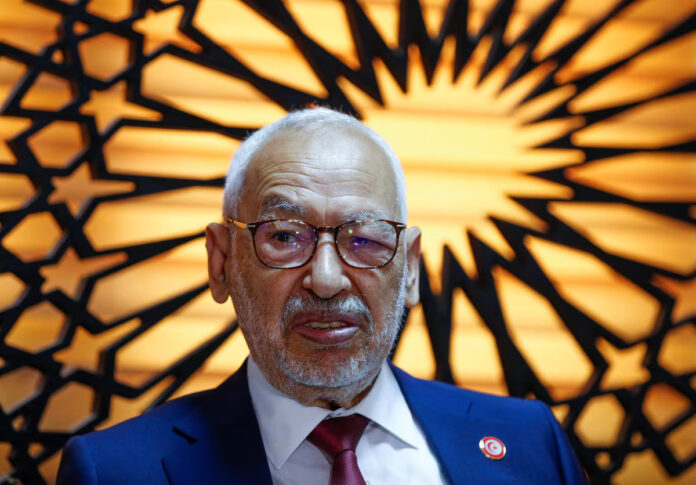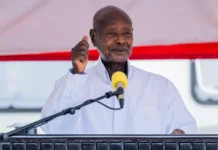
Tunisia’s jailed opposition leader Rached Ghannouchi, 84, has begun a hunger strike in prison, lawyers said on Saturday, joining two other detained politicians protesting what they call “unjust imprisonment” under President Kais Saied’s rule.
Ghannouchi, head of the Ennahda party and one of Tunisia’s most prominent political figures, is the third opposition leader to launch a hunger strike in recent days, following Jawhar Ben Mbarek and Issam Chebbi, the head of the Republican Party.
The move marks a new escalation in the opposition’s standoff with Saied, who critics accuse of dismantling the country’s post-Arab Spring democracy.
Ghannouchi has been jailed since 2023 and sentenced to 37 years in prison across multiple cases, including charges of illicit foreign financing and conspiracy against the state.
He has refused to attend court hearings, insisting that Tunisia’s judiciary now serves as “a tool of repression” under presidential control.
Ben Mbarek has been on a “wildcat” hunger strike since last week, while Chebbi began his protest on Friday, both demanding their release. Lawyers and rights groups warn that Ben Mbarek’s health has severely deteriorated and that he is refusing medical treatment.
“He told me he will leave prison either free or dead,” said his lawyer Dalila Ben Mbarek, while his father blamed President Saied for any harm that might come to him, calling the president “a dictator.”
The Tunisian Prisons Authority, however, denied that any of the prisoners’ conditions had worsened, saying medical examinations showed they were in “normal and stable” health, without providing further details.
This year, Tunisian courts have handed down lengthy prison sentences, from five to 66 years, to several opposition leaders, including Ben Mbarek and Chebbi, on charges of conspiracy against state security.
Human rights groups such as Amnesty International and Human Rights Watch have condemned the prosecutions as politically motivated.
Opposition parties accuse Saied of transforming Tunisia into an “open-air prison” since he dissolved parliament in 2021 and began ruling by decree, actions they describe as a coup.
Saied has rejected those claims, saying his measures were necessary to restore order after years of political paralysis, describing his jailed opponents as “criminals, traitors, and terrorists.”
The hunger strikes have intensified international concern over Tunisia’s deepening political crisis, with rights groups warning that continued repression could push the country further from its democratic gains of the past decade.
Source: Reuters
Written By Rodney Mbua


















